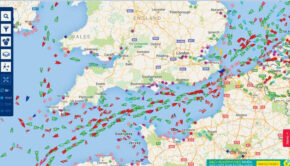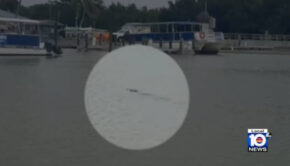AIS should be on all the time
Published on April 3rd, 2023
After a 44-year career in the military and airlines, professions steeped in safety training, Craig Warner tries to interject his experience and commitment to safety in the sport of sailing. In this report, Warner discusses the use of AIS in offshore racing:
I recently read an article concerning using AIS (Automatic Information Service) in an offshore race. All the boats participating in the race were required to have AIS but were only required to turn them on during certain portions of the race.
One race participant wrote to the race’s organizing committee citing the safety aspects of AIS and asked them to change the Sailing Instructions to require using AIS during the whole race. What happened next seemed strange and worrying.
Rather than debate the request on its safety merits, the committee polled a percentage of the racers. The race committee cited comments like the following when they turned down the request.
• Use of AIS should be a personal choice while Racing.
• AIS, which transmits position, speed, heading, as well as other performance and tactical data, may adversely impact a boat’s race strategy and its tactics
Ultimately, the Race Committee’s response: “Mandating AIS transmission while Racing will suppress race-strategy dynamics and exposes a boat’s tactics to all viewers.”
Let’s review what AIS is and what it does. AIS is a maritime navigation safety communications system adopted by the international community to help save lives and facilitate safe transit of navigable waterways. It allows a vessel to transmit its name, heading, speed, and position so that any other vessel with AIS can view its position.
Seeing other vessels’ position, speed, and heading allows the user to de-conflict from other ships before they get too close. AIS can and will prevent collisions.
More importantly, if you are experiencing an emergency, rescue assets and other boaters will know your precise location and navigate swiftly and accurately to you and render aid. In a critical emergency, minutes could be the difference between life and death. Depriving rescue assets of your exact location is not a good safety practice.
The prevention of an accident is the key asset of AIS. You might like to hide from the competition. Do you want to hide from a 1,000-foot lake freighter at Grays Reef Light in the north end of Lake Michigan in the middle of the night in heavy seas and limited visibility? Commercial ships are greatly aided in collision avoidance if they know where you are. A ship’s AIS is an indispensable part of your emergency equipment. It should be on at all times while underway.
The race committee, in this instant, made an unwise decision. The Sailing Instructions left the use of AIS up to the person in charge. I wish it were a perfect world, and everyone would know to use it, but it is not. When you see comments suggesting it is more important to sail with your AIS off to cloak your position from competitors, you intentionally expose your crew and other crews to danger.
Race organizers must examine their safety culture and ensure that race participants operate under the safest conditions possible. Race participants must follow recognized safety practices even if not mandated in the Sailing Instructions.
Nothing outweighs safety… keep your AIS on! Let’s be careful out there.









 We’ll keep your information safe.
We’ll keep your information safe.